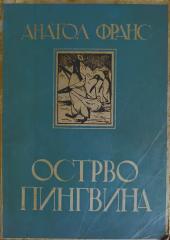
Taida: roman iz aleksandrijskih vremena
The novel Taida, published in 1890, is one of the most famous works by French Nobel Prize winner Anatole France. The work is inspired by the legend of Saint Taida of Egypt, a 4th-century courtesan who converted to Christianity.
The novel follows Paphnutius, an ascetic monk living in the Egyptian desert. Inspired by a vision, he decides to save Taida, a famous Alexandrian courtesan, from her sinful life. Paphnutius travels to Alexandria, where, disguised as a wealthy young man, he approaches Taida and manages to convert her to Christianity. Together they return to the desert, where Taida begins a life of penance in a monastery under the guidance of the nun Albina.
However, Paphnutius increasingly struggles with his own feelings for Taida. While she sincerely seeks spiritual purification, he faces an internal conflict between his faith and his growing carnal desire. In the end, when Taida dies in a state of spiritual ecstasy, Paphnutius confesses his love for her and expresses doubts about her faith, revealing his own spiritual crisis.
Taida is a philosophical novel that explores themes of spirituality, temptation, repentance, and inner conflict. France uses historical context to critically reflect on religion, morality, and human nature, often with a touch of irony and skepticism. The work also served as inspiration for Jules Massenet's 1894 opera Thaïs.
One copy is available
- Damaged covers
- Traces of patina





